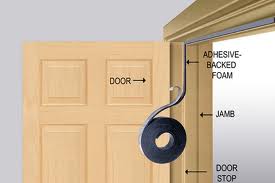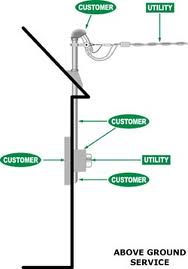Q. WHAT IS A “HOME INSPECTION”?
A home inspection is an objective visual examination of the physical structure and systems of a home, from the roof to the foundation. Having a home inspected is like giving it a physical check-up. If problems or symptoms are found, the inspector may recommend further evaluation.
Q. WHAT DOES IT INCLUDE?
The standard home inspector’s report will review the condition of the home’s heating system, central air conditioning system (temperature permitting), interior plumbing and electrical systems; the roof, attic, and visible insulation; walls, ceilings, floors, windows and doors; the foundation, basement, and visible structure.
Q. WHY DO I NEED A HOME INSPECTION?
The purchase of a home is probably the largest single investment you will ever make. You should learn as much as you can about the condition of the property and the need for any major repairs before you buy, so that you can minimize unpleasant surprises and difficulties afterwards.
Of course, a home inspection also points out the positive aspects of a home, as well as the maintenance that will be necessary to keep it in good shape. After the inspection, you will have a much clearer understanding of the property you are about to purchase.
If you are already a home owner, a home inspection may be used to identify problems in the making and to learn preventive measures which might avoid costly future repairs. If you are planning to sell your home, you may wish to have an inspection prior to placing your home on the market. This will give you a better understanding of conditions which may be discovered by the buyer’s inspector, and an opportunity to make repairs that will put the house in better selling condition.
Q. WHAT WILL IT COST?
The inspection fee for a typical one-family house varies geographically, as does the cost of housing. Similarly, within a given area, the inspection fee may vary depending upon the size of the house, particular features of the house, its age, and possible additional services, such as septic, well, or radon testing. It is a good idea to check local prices on your own. Remember all inspections are not alike. Usually you get what you pay for.
However, do not let cost be a factor in deciding whether or not to have a home inspection, or in the selection of your home inspector. The knowledge gained from an inspection is well worth the cost, and the lowest-priced inspector is not necessarily a bargain. The inspector’s qualifications, including his experience, training, and professional affiliations, should be the most important consideration.
Q. CAN’T I DO IT MYSELF?
Even the most experienced home owner lacks the knowledge and expertise of a professional home inspector who has inspected hundreds, perhaps thousands, of homes in his or her career. An inspector is familiar with the many elements of home construction, their proper installation, and maintenance. He or she understands how the home’s systems and components are intended to function together, as well as how and why they fail.
Above all, most buyers find it very difficult to remain completely objective and unemotional about the house they really want, and this may affect their judgment. For the most accurate information, it is best to obtain an impartial third-party opinion by an expert in the field of home inspection.
Q. CAN A HOUSE FAIL INSPECTION?
No. A professional home inspection is an examination of the current condition of your prospective home. It is not an appraisal, which determines market value, or a municipal inspection, which verifies local code compliance. A home inspector, therefore, will not pass or fail a house, but rather describe its physical condition and indicate what may need repair or replacement.
Q. HOW DO I FIND A HOME INSPECTOR?
The best source is a friend, or perhaps a business acquaintance, who has been satisfied with and can recommend a home inspector they have used. In addition, the names of local inspectors can be found by searching Internet or the Yellow Pages where many advertise under “Building Inspection Service” or “Home Inspection Service”. Real estate agents are also generally familiar with the service, and should be able to provide you with a list of names from which to choose.
All home inspections performed in Kentucky must be done by a Kentucky Licensed Home Inspector. A list of licensed home inspectors can be found on the Kentucky Board of Home Inspectors web site.
Whatever your referral source, you will want to make sure that the home inspector is a member in good standing of the Kentucky Real Estate Inspection Association (KREIA) in order to be certain of his or her professional qualifications, experience, and business ethics and continuing education.
Q. WHEN DO I CALL IN THE HOME INSPECTOR?
A home inspector is typically contacted right after the contract or purchase agreement has been signed, and is often available within a few days. However, before you sign, be sure that there is an inspection clause in the contract, making your purchase obligation contingent upon the findings of a professional home inspection. This clause should specify the terms to which both the buyer and seller are obligated.
Q. DO I HAVE TO BE THERE?
It is not necessary for you to be present for the inspection, but it is recommended. You will be able to observe the inspector and ask questions directly, as you learn about the condition of the home, how its systems work, and how to maintain it. You will also find the written report easier to understand if you’ve seen the property first-hand through the inspector’s eyes.
Q. WHAT IF THE REPORT REVEALS PROBLEMS?
No house is perfect. If the inspector identifies problems, it doesn’t necessarily mean you shouldn’t buy the house, only that you will know in advance what to expect. A seller may adjust the purchase price or contract terms if major problems are found. If your budget is tight, or if you don’t wish to become involved in future repair work, this information will be extremely important to you.
Q. IF THE HOUSE PROVES TO BE IN GOOD CONDITION, DID I REALLY NEED AN INSPECTION?
Definitely, now you can complete your home purchase with your eyes open as to the condition of the property and all its equipment and systems. You will also have learned many things about your new home from the inspector’s written report, and will want to keep that information for future reference.



 When you consider how you use energy at home, up to 70 percent of your energy usage may be attributed to heating, cooling and appliances. If you plan to make upgrades in these areas, we want to help make these largest energy users even more affordable for you.
When you consider how you use energy at home, up to 70 percent of your energy usage may be attributed to heating, cooling and appliances. If you plan to make upgrades in these areas, we want to help make these largest energy users even more affordable for you.